13 Best Herbal Teas For Menopause
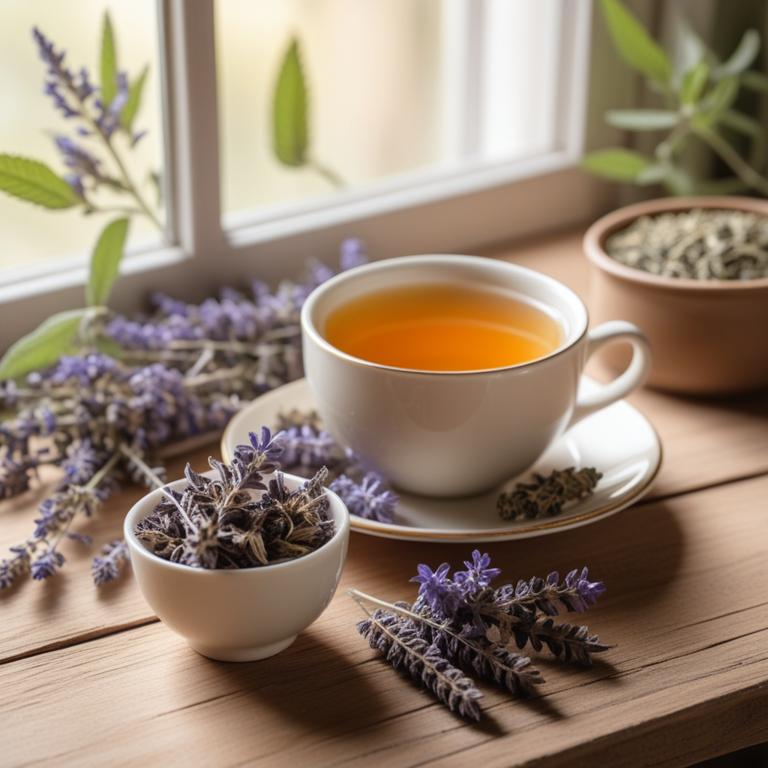
Herbal teas for Menopause are a natural remedy that involves the consumption of tea made from various herbs, flowers, and roots to alleviate the symptoms associated with menopause.
These herbal teas offer numerous benefits, including reducing hot flashes, improving sleep quality, and alleviating mood swings.
Examples of herbal teas used to treat menopause symptoms include Black Cohosh, which helps to balance hormonal levels; Red Clover, which may help to alleviate hot flashes and night sweats; Ginger, which has anti-inflammatory properties and can help to reduce nausea; Peppermint, which can help to calm the digestive system and reduce anxiety; and Maca root, which can help to balance hormonal levels and improve mood.
By incorporating these herbal teas into one's daily routine, individuals can find natural relief from the symptoms of menopause.
According to the study, teas for menopause may be a viable option, particularly black cohosh tea, which has been shown to be safe and effective for reducing menopausal symptoms, primarily hot flashes.
Below there's a list of the 13 best herbal teas for menopause.
- 1. Cimicifuga racemosa teas
- 2. Valeriana officinalis teas
- 3. Zingiber officinale teas
- 4. Melissa officinalis teas
- 5. Vitex agnus-castus teas
- 6. Ginkgo biloba teas
- 7. Passiflora incarnata teas
- 8. Lavandula angustifolia teas
- 9. Tilia platyphyllos teas
- 10. Avena sativa teas
- 11. Glycyrrhiza glabra teas
- 12. Lindera benzoin teas
- 13. Cynara scolymus teas
Also you may be interested in...
TODAY'S FREE BOUNDLE
Herb Drying Checklist + Herbal Tea Shopping List + Medicinal Herbs Flashcards
Enter you best email address below to receive this bundle (3 product valued $19.95) for FREE + exclusive access to The Aphotecary Letter.
$19.95 -> $0.00
1. Cimicifuga racemosa teas
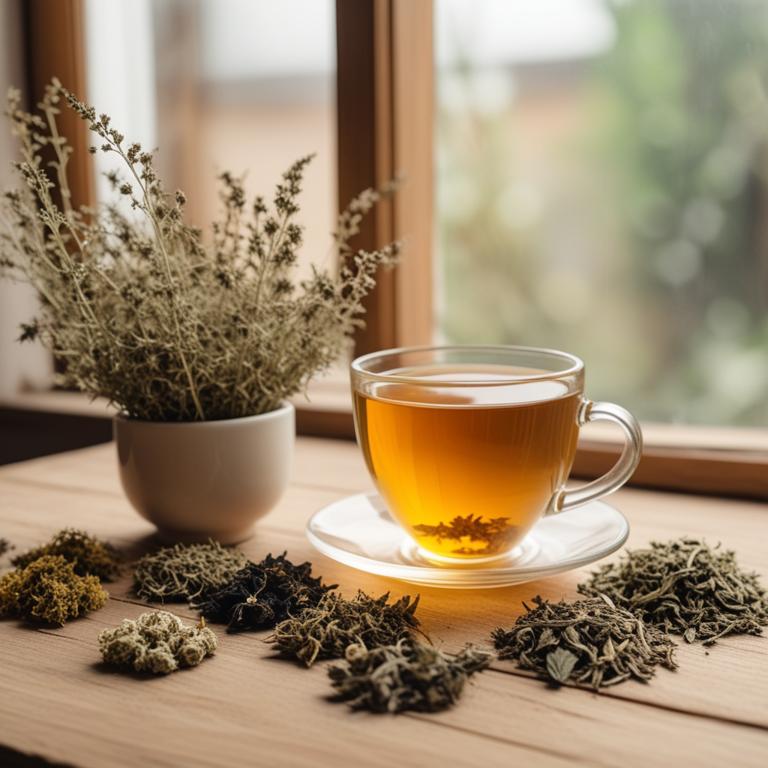
Cimicifuga racemosa teas have been traditionally used to treat menopause-related symptoms such as hot flashes and night sweats due to their estrogen-like properties, which help to alleviate hormonal imbalances.
The bioactive constituents, including ferulic acid, lignans, and phenolic acids, possess anti-inflammatory and antioxidant properties that contribute to their therapeutic effects.
These constituents help to regulate the body's hormonal balance, reduce inflammation, and promote relaxation, ultimately alleviating symptoms of menopause.
The benefits of using Cimicifuga racemosa teas to treat menopause include reduced frequency and severity of hot flashes, improved sleep quality, and a decrease in anxiety and depression.
Related Study
According to "The American journal of the medical sciences", Cimicifuga racemosa teas for menopause may be used as a natural alternative to alleviate menopausal symptoms, although more well-designed clinical trials are needed to confirm its efficacy and safety.
2. Valeriana officinalis teas

Valeriana officinalis teas, derived from the roots of the valerian plant, have been traditionally used to alleviate menopause symptoms.
The sedative and anxiolytic properties of this herbal preparation help to treat menopause-related anxiety and insomnia by promoting relaxation and reducing stress levels.
The bioactive constituents, including valerenic acid, valerenol, and valepotriates, interact with the GABA receptors in the brain, which helps to regulate sleep-wake cycles and reduce hot flashes.
The benefits of Valeriana officinalis teas in treating menopause symptoms include improved sleep quality, reduced anxiety and depression, and enhanced overall well-being.
Related Study
According to the study published in the "Electronic physician", Valeriana officinalis teas for menopause have been found to be effective in the treatment of acute menopausal syndrome, particularly in alleviating symptoms such as hot flashes.
3. Zingiber officinale teas

Zingiber officinale teas, derived from the root of the ginger plant, have been traditionally used to alleviate menopause symptoms such as hot flashes and mood swings.
The bioactive constituents of ginger, including gingerols and shogaols, possess anti-inflammatory and antioxidant properties that help to regulate hormonal imbalances and reduce symptoms associated with menopause.
The heating effect of ginger, known as 'dual action', helps to warm the body from the inside, relieving hot flashes and night sweats, while its anti-inflammatory properties soothe and calm the nervous system, reducing anxiety and mood swings.
The benefits of consuming Zingiber officinale teas to treat menopause symptoms include reduced frequency and severity of hot flashes, improved sleep quality, and enhanced overall well-being.
4. Melissa officinalis teas

Melissa officinalis teas, also known as lemon balm teas, have been traditionally used to treat menopause symptoms, particularly hot flashes, anxiety, and sleep disturbances.
The anxiolytic and sedative properties of Melissa officinalis teas help to soothe the nervous system, reducing feelings of anxiety and stress.
The bioactive constituents, including rosmarinic acid, apigenin, and luteolin, in Melissa officinalis teas contribute to its therapeutic effects by inhibiting the production of stress hormones and promoting relaxation.
The benefits of using Melissa officinalis teas to treat menopause symptoms include improved sleep quality, reduced hot flash frequency, and enhanced overall well-being.
Related Study
According to "Electronic physician", Melissa officinalis teas for menopause may be effective in the treatment of acute menopausal syndrome, particularly in managing hot flashes.
5. Vitex agnus-castus teas
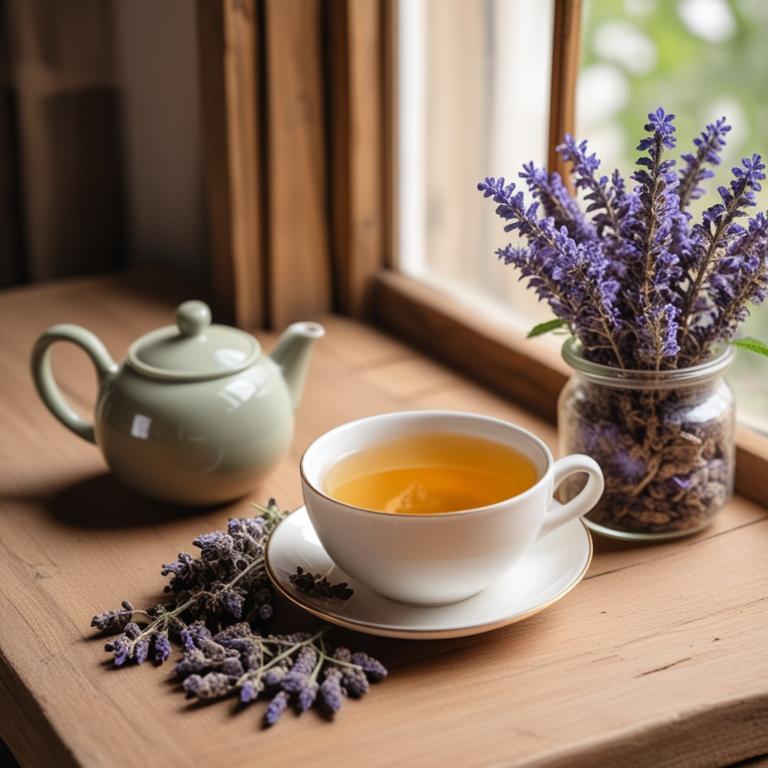
Vitex agnus-castus teas have been traditionally used to treat menopause-related symptoms, particularly hot flashes, mood swings, and sleep disturbances.
This herbal preparation contains a unique combination of flavonoids, alkaloids, and essential oils, including agnuside, aucubin, and ursolic acid, which help to regulate hormonal imbalances and alleviate menopause symptoms.
The bioactive constituents in Vitex agnus-castus teas work by modulating the body's hormone production, particularly estrogen, and have a calming effect on the nervous system, leading to reduced anxiety and improved sleep quality.
The benefits of using Vitex agnus-castus teas to treat menopause symptoms include reduced frequency and severity of hot flashes, improved mood and sleep, and a natural and non-invasive approach to managing menopause-related symptoms.
Related Study
According to "Archives of gynecology and obstetrics", Vitex agnus-castus teas for menopause may be beneficial in reducing menopausal symptoms, as suggested by a study where patients treated with a Vitex agnus-castus extract experienced a significant reduction (42.5%) in menopausal distress symptoms, although the study primarily focused on premenstrual syndrome (PMS).
6. Ginkgo biloba teas

Ginkgo biloba teas have been traditionally used to alleviate symptoms associated with menopause, such as hot flashes and mood swings, due to their ability to regulate hormonal imbalances and promote relaxation.
The herbal preparation's property of improving blood circulation also helps to reduce the frequency and severity of hot flashes.
The bioactive constituents of Ginkgo biloba, including flavonoids and terpenoids, are responsible for its therapeutic effects, which include antioxidant and anti-inflammatory activities that contribute to its menopause-relieving properties.
Regular consumption of Ginkgo biloba teas may provide benefits such as reduced symptoms of anxiety and depression, improved sleep quality, and enhanced overall well-being during menopause.
Related Study
According to "Electronic physician", Ginkgo biloba teas for menopause may be effective in the treatment of acute menopausal syndrome, including hot flashes, as part of a group of medicinal plants studied.
7. Passiflora incarnata teas
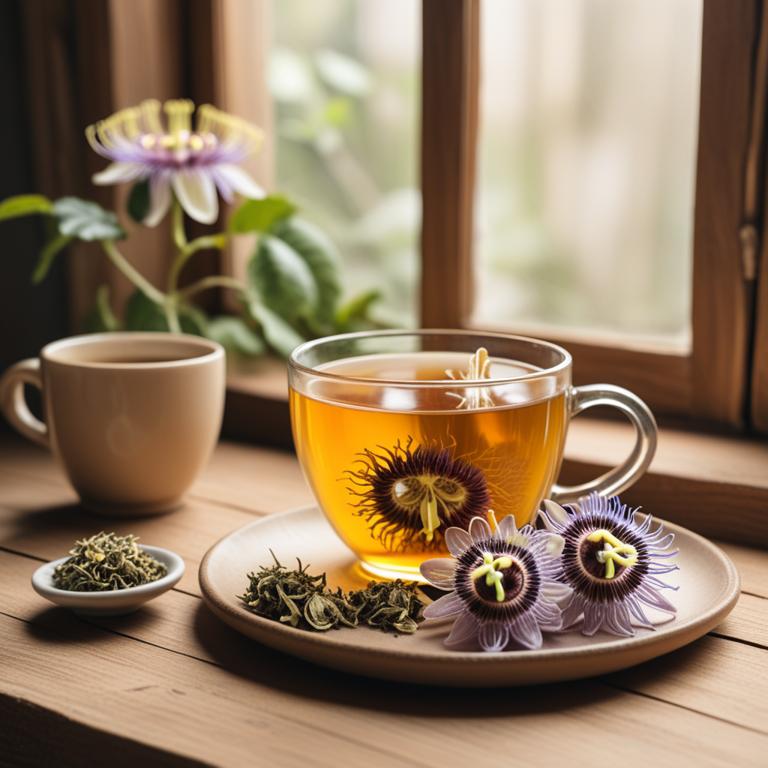
Passiflora incarnata teas, derived from the Passionflower plant, have been traditionally used to alleviate menopause symptoms such as hot flashes and night sweats.
The anti-inflammatory and antioxidant properties of this herbal preparation help to reduce the severity and frequency of these symptoms, promoting a sense of calm and well-being.
The bioactive constituents, including flavonoids, alkaloids, and glycosides, work synergistically to modulate neurotransmitters and hormones, thereby regulating the body's response to hormonal changes during menopause.
By using Passiflora incarnata teas, women can experience the benefits of reduced stress and anxiety, improved sleep quality, and a more balanced hormonal profile, making it a natural and effective treatment option for menopause symptoms.
Related Study
According to "Electronic physician", Passiflora incarnata teas for menopause may be effective in the treatment of acute menopausal syndrome, particularly hot flashes, due to its different mechanisms.
8. Lavandula angustifolia teas

Lavandula angustifolia teas have been traditionally used to alleviate menopause symptoms, particularly hot flashes and night sweats.
The herbal preparation's calming effects are attributed to its high concentration of linalool and linalyl acetate, which possess estrogen-modulating and anti-inflammatory properties.
These bioactive constituents help to regulate hormonal imbalances and reduce stress, thus providing relief from menopause-related symptoms.
The benefits of using Lavandula angustifolia teas to treat menopause include reduced frequency and severity of hot flashes, improved sleep quality, and enhanced overall well-being.
9. Tilia platyphyllos teas
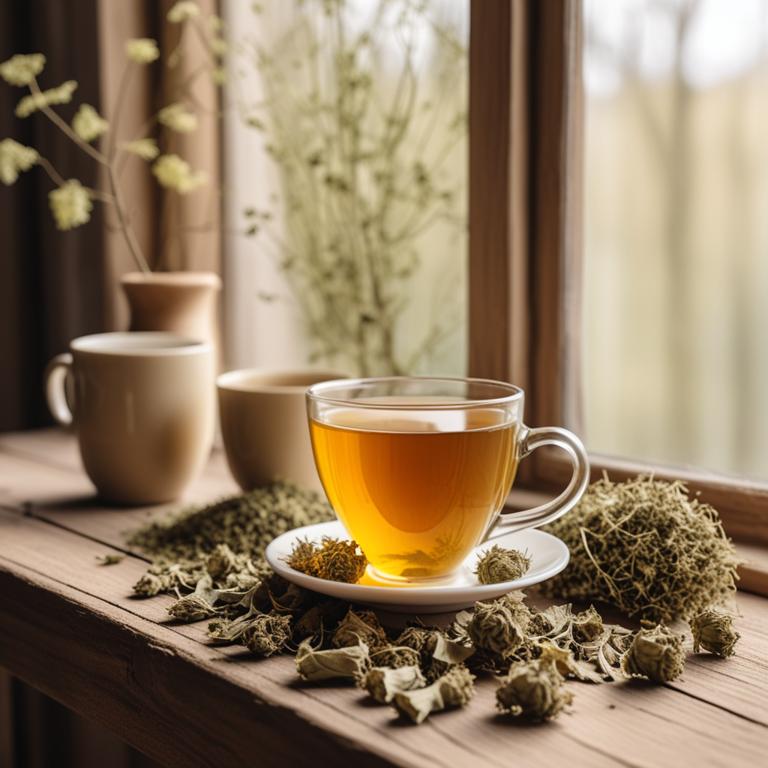
Tilia platyphyllos teas have been used traditionally to treat various menopause-related symptoms, including hot flashes and mood swings.
The anti-inflammatory and antioxidant properties of this herbal preparation help to reduce the severity of these symptoms by regulating hormone levels and promoting relaxation.
The bioactive constituents of Tilia platyphyllos, including flavonoids and terpenoids, contribute to its therapeutic effects by modulating the body's response to hormonal changes and alleviating symptoms of anxiety and depression.
Regular consumption of Tilia platyphyllos teas has been found to provide relief from menopause symptoms, improve sleep quality, and enhance overall well-being in women experiencing this natural life transition.
10. Avena sativa teas

Avena sativa teas, also known as oat straw tea, have been traditionally used to alleviate menopause symptoms due to their adaptogenic and anti-inflammatory properties.
This herbal preparation helps to treat menopause-related issues such as hot flashes, night sweats, and mood swings by reducing stress and promoting hormonal balance.
Avena sativa contains bioactive constituents like avenanthramides, a type of phenolic compound, which are responsible for its anti-inflammatory and antioxidant effects, thereby providing relief from menopause symptoms.
The benefits of using Avena sativa teas to treat menopause include improved sleep quality, reduced anxiety and depression, and enhanced overall well-being.
11. Glycyrrhiza glabra teas

Glycyrrhiza glabra teas, also known as licorice root tea, have been traditionally used to alleviate menopause symptoms, particularly hot flashes and night sweats.
The anti-inflammatory and antioxidant properties of this herbal preparation help to soothe the body and reduce the severity of menopause-related symptoms.
The bioactive constituents, including glycyrrhizin and flavonoids, present in Glycyrrhiza glabra teas have been found to help regulate hormone levels and improve sleep quality, which are often disrupted during menopause.
Overall, the benefits of Glycyrrhiza glabra teas in treating menopause symptoms include improved sleep, reduced hot flashes, and a sense of overall well-being, making it a popular natural remedy for women experiencing menopause.
Related Study
According to "Electronic physician", Glycyrrhiza glabra teas for menopause have been shown to be effective in the treatment of acute menopausal syndrome, specifically in alleviating symptoms such as hot flashes.
12. Lindera benzoin teas

Lindera benzoin teas, also known as spicebush teas, have been traditionally used to treat menopause-related ailments due to their anti-inflammatory, antioxidant, and estrogenic properties.
The bioactive constituents, including benzaldehyde, benzyl benzoate, and essential oils, help to alleviate symptoms such as hot flashes, night sweats, and mood swings.
By modulating the body's hormonal balance and promoting relaxation, Lindera benzoin teas provide relief from menopause-related discomforts, allowing women to manage their symptoms more effectively.
The benefits of using Lindera benzoin teas to treat menopause include reduced symptoms, improved sleep quality, and enhanced overall well-being.
13. Cynara scolymus teas
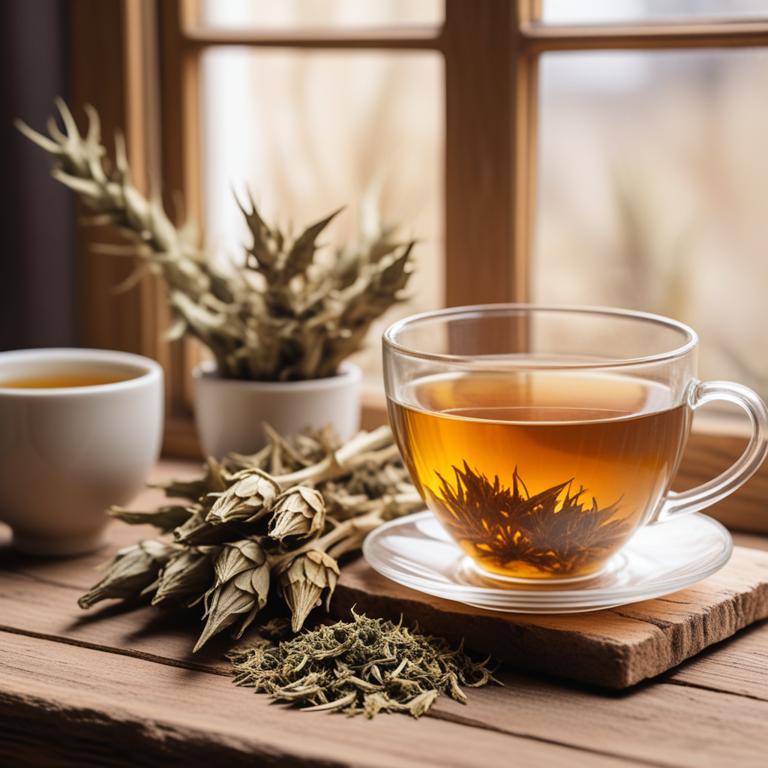
Cynara scolymus teas, also known as artichoke tea, have been traditionally used to alleviate menopause symptoms due to their estrogenic and phytoestrogenic properties.
The saponins and flavonoids present in Cynara scolymus teas help to stimulate estrogen production, thereby reducing hot flashes and night sweats associated with menopause.
The tea's antioxidant and anti-inflammatory properties also contribute to its therapeutic effects, promoting overall well-being and reducing the risk of cardiovascular disease in menopausal women.
The benefits of consuming Cynara scolymus teas to treat menopause symptoms include reduced symptoms, improved sleep quality, and a lower risk of osteoporosis and cardiovascular disease.